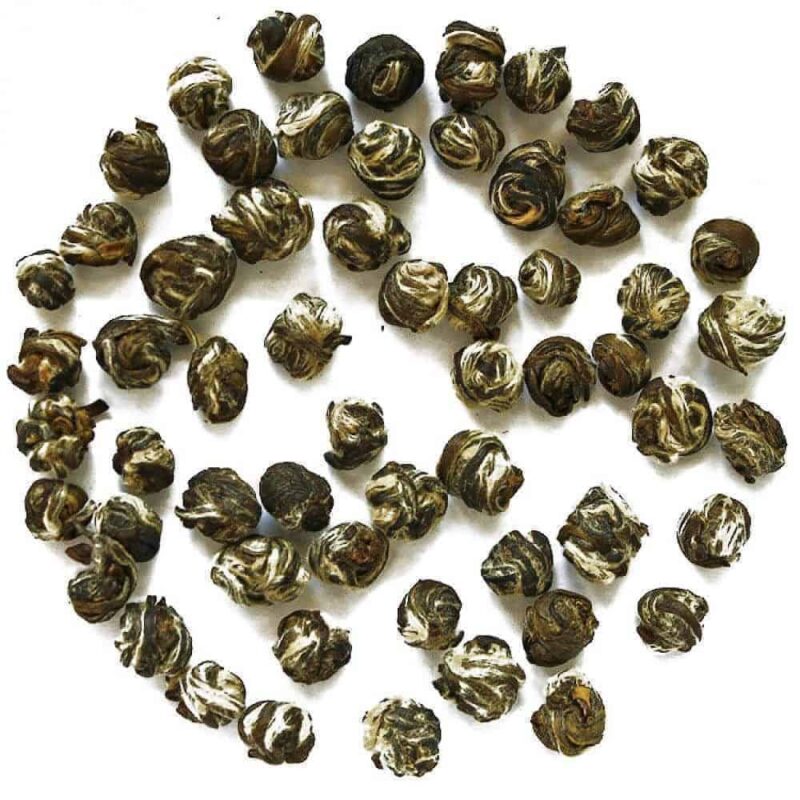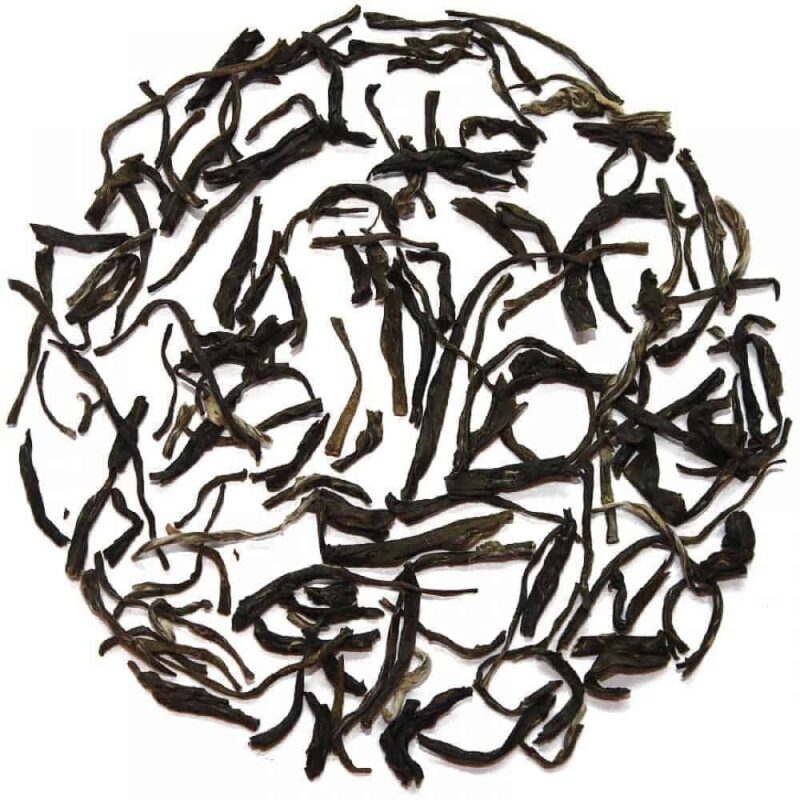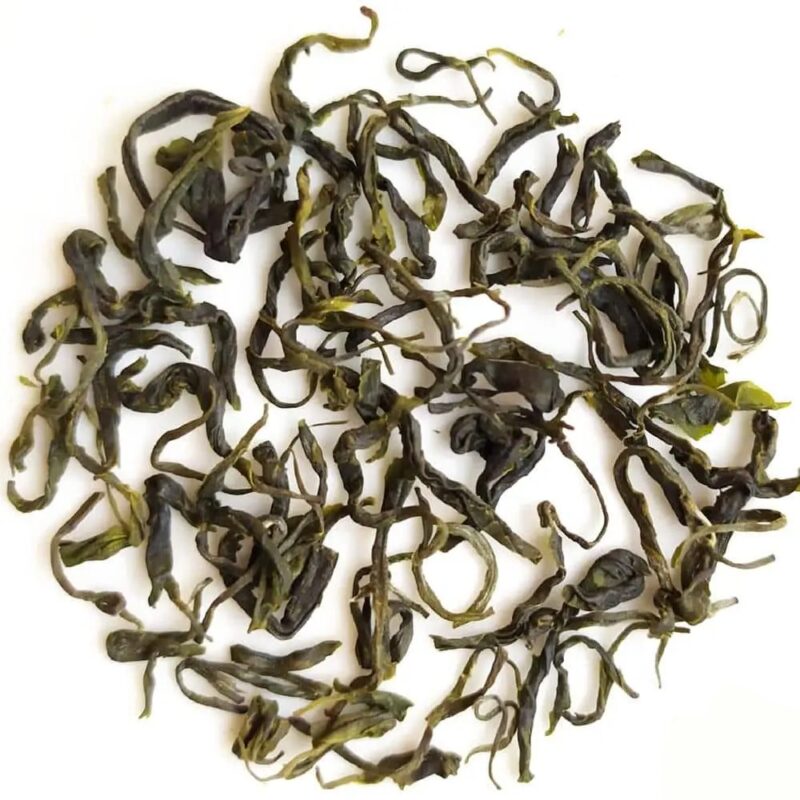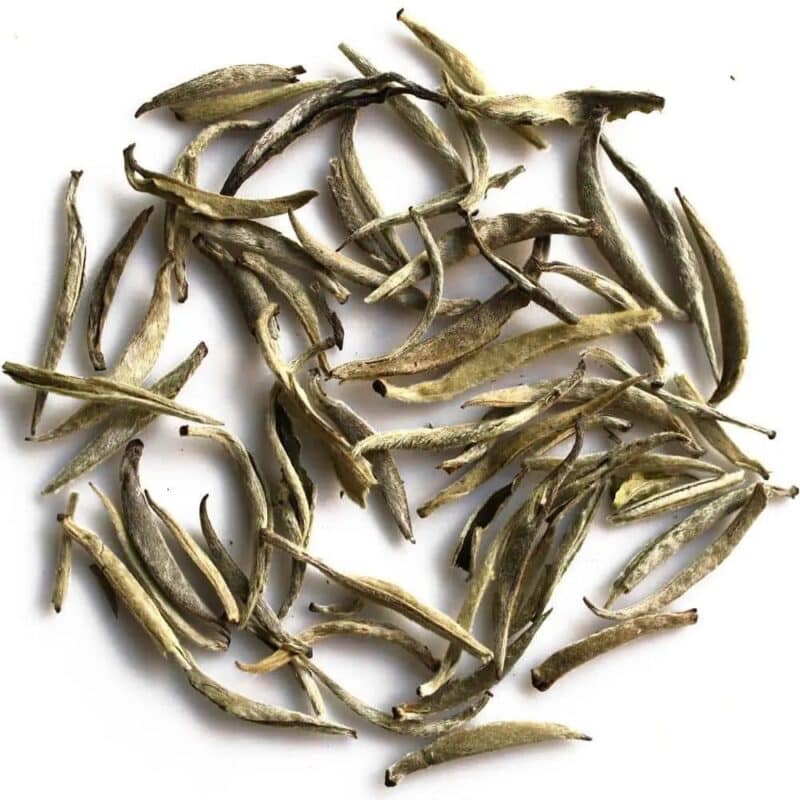Jasmine tea
Real jasmine tea is the original reference that all flavored teas have to compare themselves to. One of the few flavored teas that is not seasoned with oils and essences but with real, freshly picked flowers. The tea maker's work with high-quality jasmine teas really requires a lot of time and craftsmanship. The jasmine flowers must be picked at exactly the right moment and spread over the tea leaves at exactly the right time. This is often repeated in several rounds with new, fresh flowers in order for a complete fragrance to develop, as in our Jasmine Silver Tips and Jasmine Pearls Teji. In addition to the fragrance, it is crucial that the tea itself is of high quality, with a character that marries with the jasmine aromas. Read more
-

Jasmine Pearls Teji
Starting at 11.74€ -

Jasmine Silver Tips
Starting at 5.92€
Origin and production of jasmine tea
Jasmine tea has a rich history that dates back thousands of years in China, where it was first produced. The traditional production process involves using green tea as a base, which is then blended with jasmine blossoms during their blooming season. This allows the tea to absorb the volatile aromatic compounds from the flowers, resulting in a complex and delicate flavor profile. The natural oils of jasmine, primarily found in the flower petals, are responsible for the tea's distinctive fragrance and taste. Today, organic jasmine tea is also available, meaning it is cultivated without the use of synthetic fertilizers or pesticides, contributing to a more sustainable production process.
Variations and flavor profile
Jasmine tea can be classified into various categories based on both the tea base and the production method. The most common form is green jasmine tea, but combinations with white tea also exist, offering a more subtle flavor. Within the category of jasmine tea, there are different products such as jasmine tea bags and loose-leaf jasmine tea, the latter often providing a more intense flavor experience. The production of tea flavored with jasmine also employs various techniques to achieve the desired aroma and flavor profile, which influences how the floral characteristics of jasmine are perceived in the final beverage.
Health benefits of organic jasmine tea
Several studies have shown that jasmine tea, particularly in its organic form, offers health benefits due to its rich content of antioxidants, including flavonoids and polyphenols. These compounds have been shown to help combat oxidative stress and may contribute to reducing the risk of certain diseases. Organic jasmine tea avoids the use of chemicals, which potentially makes it a healthier choice for consumers. Research also indicates that, in general, consuming green tea can have positive effects on cardiovascular health and weight control, making jasmine tea an appealing beverage for those seeking both flavor and healthful properties.
Steeping green jasmine tea
The experience of green jasmine tea involves careful attention to both brewing temperature and time in order to achieve the best result. The recommended water temperature is around 75-80°C, which preserves the delicate aromas of the tea without extracting unwanted bitterness from the leaves. The sensory characteristics of the tea, including both its aroma and flavor, can vary significantly depending on the origin of the tea leaves and the quality of the jasmine flowers used. Therefore, it is important for consumers to choose high-quality products, such as jasmine-flavored tea, which offer an authentic and enjoyable beverage for various occasions, whether served hot or cold.


